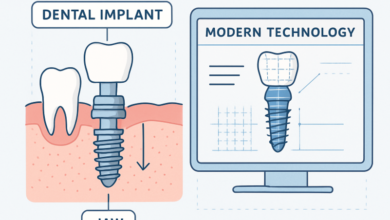Inclusion Matters: Celebrating World Cerebral Palsy Day 2025

Every year, World Cerebral Palsy Day shines a light on the experiences of millions of people living with cerebral palsy (CP). In 2025, the global campaign emphasizes one clear message: inclusion matters. Based on the official report issued by pafikutaikab.org advocates, healthcare professionals, and families around the world are uniting to push for greater awareness, accessibility, and equality for individuals with CP.
What Is Cerebral Palsy?
Cerebral palsy is a lifelong neurological condition caused by brain injury or abnormal brain development, usually occurring before or shortly after birth. It primarily affects movement, muscle tone, and posture, though the symptoms vary widely. Some people with CP may require wheelchairs or assistive devices, while others may only experience mild motor challenges.
Globally, CP is the most common physical disability in childhood, affecting more than 17 million people. Despite its prevalence, stigma and lack of understanding still surround the condition, making awareness days like this essential.
The Theme of 2025: Inclusion Matters
This year’s campaign calls for action beyond awareness, focusing on true inclusion in everyday life. From schools to workplaces, individuals with CP often face barriers that limit their opportunities.
“Inclusion isn’t just about accessibility ramps or policies,” said Dr. Lestari Prabowo, a pediatric neurologist. “It’s about ensuring that people with CP are given the same respect, opportunities, and recognition as anyone else.”
Events worldwide include inclusive sports tournaments, art exhibitions showcasing the talents of individuals with CP, and educational workshops aimed at breaking stereotypes. Social media campaigns are also amplifying personal stories, reminding the public that people with CP are more than their condition.
Challenges Still Faced
While medical advancements have improved care, many people with CP continue to encounter obstacles:
- Limited access to therapy: Essential physiotherapy and occupational therapy remain costly and unevenly available.
- Educational inequality: Inclusive education systems are still lacking in many regions, leaving children with CP sidelined.
- Employment barriers: Adults with CP face discrimination in hiring and limited workplace accommodations.
- Social stigma: Misconceptions often isolate individuals with CP from full participation in their communities.
These challenges highlight why this year’s theme—inclusion matters—is so critical.
See also: The Connection Between Dental Health and Your Overall Wellness
The Role of Families and Communities
Inclusion begins at home. Families who encourage independence and advocate for equal rights play a pivotal role in changing perceptions. Schools, workplaces, and local communities must also step up to create inclusive environments.
“Small changes, like providing adaptive technology in classrooms or flexible work policies, can make a huge difference,” Dr. Lestari emphasized.
Looking Toward the Future
Advocates hope World CP Day 2025 will inspire governments to strengthen disability rights legislation, increase funding for healthcare and education, and promote inclusive cultural initiatives.
More importantly, the campaign aims to shift mindsets—reminding society that inclusion is not charity but a basic human right.
World Cerebral Palsy Day 2025 serves as a powerful reminder that inclusion matters. Beyond raising awareness, it is a call to action for communities, institutions, and individuals to ensure that people with CP are not left behind.
As voices around the world unite, the message is clear: when we embrace inclusion, everyone benefits.




